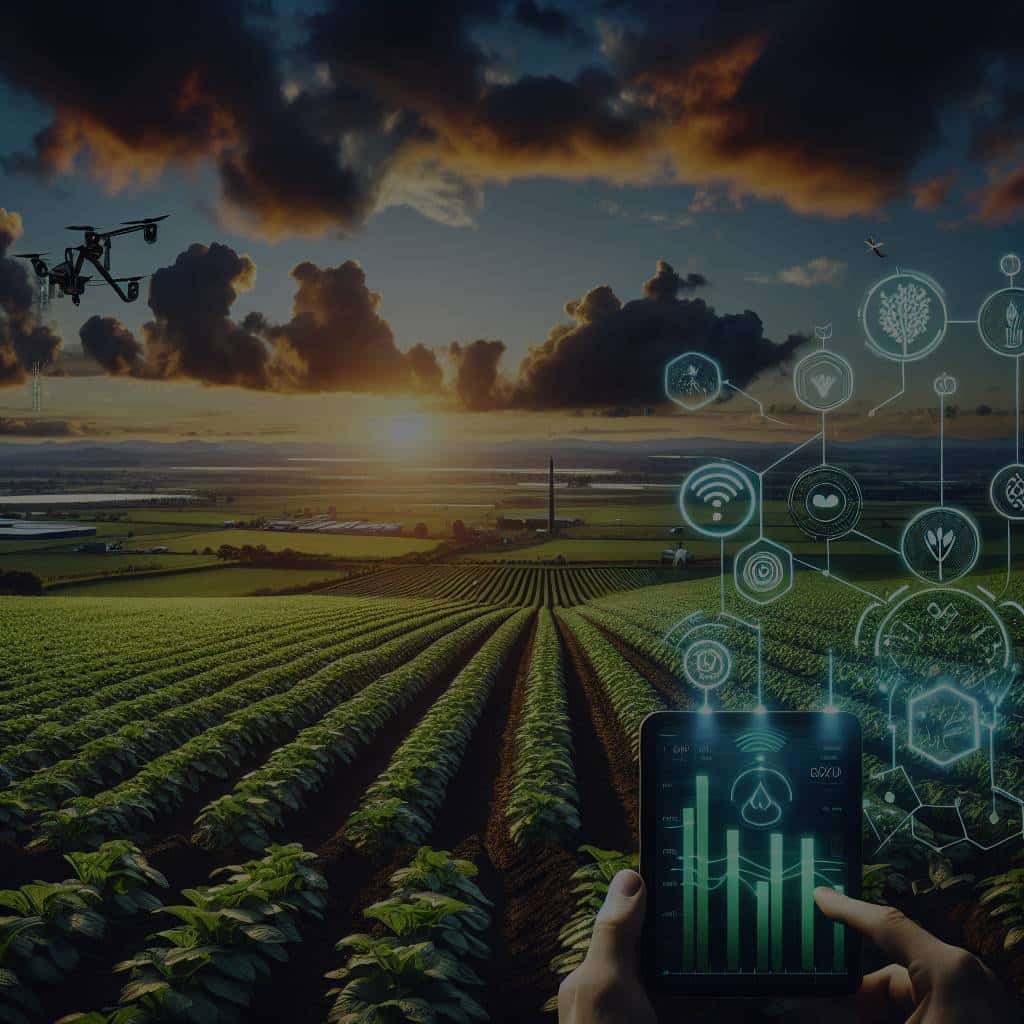What Innovations in Soil Health Monitoring Are Supporting Sustainable Farming?

In the vast world of agriculture, soil health stands as a critical and fundamental factor for farmers. The quality of soil directly impacts crop yield and the overall sustainability of farming practices. For you, the farmers, maintaining soil health has always been a priority, but traditional methods have often fallen short in providing real-time, accurate data. Fortunately, technological advancements in soil health monitoring are ushering in a new era of sustainable farming.
Technological Innovations in Soil Health Monitoring
Traditionally, soil health assessment involved manual labor and time-consuming processes. With the advent of technology, this scenario is undergoing a transformation. Innovations in soil health monitoring are providing farmers with accurate, real-time data, leading to improved decision-making in crop management and farming practices.
Also to read : How Is Blockchain Contributing to the Creation of Decentralized Social Media Platforms?
Data Collection and Analysis
Emerging technologies are making it easier to gather more accurate and comprehensive soil health data. Sensors and IoT (Internet of Things) devices can continuously monitor soil health parameters such as temperature, moisture, pH, and nutrient levels. They transmit this data to a central system where it can be easily accessed and analyzed. This real-time monitoring allows you to adjust your farming practices based on accurate, up-to-date information, rather than relying on estimations or outdated reports.
Some ag-tech companies are using satellite imagery and drone technology to gather soil health data. This allows for large-scale monitoring that can identify broader trends and issues. For example, these technologies can reveal areas of a field where the soil is less fertile, enabling targeted treatment.
Also read : What Are the Latest Developments in Non-Invasive Glucose Monitoring for Diabetics?
Machine learning and AI algorithms are increasingly being used to analyze soil health data. These algorithms can identify patterns and make predictions, offering insights that would be nearly impossible to glean manually. This detailed analysis can help you optimize your farming practices, increasing crop yield and reducing waste.
Water Management
In light of climate change and water scarcity issues, efficient water management is crucial. Innovative soil monitoring technologies are helping farmers manage their water resources more effectively. Soil sensors can measure the moisture content of the soil, providing real-time data on when and where irrigation is needed. This not only saves water but also ensures that crops get the right amount of water at the right time, promoting healthier growth.
Carbon Sequestration
Soil health monitoring is also playing a crucial role in sustainable farming practices related to carbon sequestration. Soil is a major carbon sink, capable of absorbing and storing carbon dioxide from the atmosphere. Technological innovations are making it possible to monitor the carbon content of the soil accurately. This data can inform your farming practices, helping you increase the carbon sequestration potential of your land. This is not only beneficial for the environment but also can contribute to carbon credit programs.
The Impact of Soil Health Monitoring on Sustainable Farming
There’s no doubt that these advancements in soil health monitoring technology are having a significant impact on sustainable farming. They’re enabling you to make informed decisions based on data, leading to more efficient and effective agricultural practices.
Enhanced Crop Health and Yield
The ability to monitor soil health in real-time and with such precision leads to healthier crops and higher yields. By understanding the exact condition of your soil, you can tailor your farming practices to meet the needs of your crops. This could involve adjusting irrigation schedules, applying fertilizers more selectively, or choosing crop varieties that are well-suited to the soil conditions.
Sustainability and Environmental Impact
These technologies are also promoting more sustainable farming practices. By optimizing water usage, reducing the need for excess fertilizers, and enhancing carbon sequestration, soil health monitoring is helping to minimize the environmental impact of farming.
Economic Benefits
While the initial investment in these technologies can be significant, the long-term economic benefits are substantial. Increased crop yield leads to higher revenue, while more efficient farming practices can reduce costs. Furthermore, the ability to participate in carbon credit programs can provide an additional source of income.
In the ever-evolving landscape of agriculture, the innovations in soil health monitoring are playing a pivotal role in advancing sustainable farming. These technologies are providing you, the farmers, with the precise and real-time data you need to optimize your farming practices, ensuring the health and productivity of your soil for generations to come.
Soil Health Monitoring and Precision Agriculture
The intersection of soil health monitoring and precision agriculture is creating new opportunities for sustainable farming. Precision agriculture refers to the use of advanced technologies to manage variability in agricultural practices. It combines a variety of tools, including GPS, sensors, and satellite imagery, to collect detailed information about the field conditions. This data is then used to manage the farm in a more efficient and sustainable way.
One of the key components of precision agriculture is soil health monitoring. It involves collecting data on a range of soil health indicators, such as pH, nutrient levels, moisture content, and carbon content. This data provides a comprehensive picture of the soil condition, enabling farmers to make more informed decisions about their farming practices.
In the past, soil health monitoring often involved complex and time-consuming laboratory tests. However, technological advancements have made it possible to monitor soil health in real-time. Sensors and IoT devices are increasingly being used to gather continuous, up-to-date soil health data. Combined with machine learning and AI algorithms, this data can provide valuable insights and predictions, helping farmers optimize their farming practices.
For instance, soil sensors can measure the soil moisture content, providing real-time data on when and where irrigation is needed. This can help farmers manage their water resources more effectively, a crucial factor in the context of climate change and water scarcity. Similarly, monitoring the carbon content of the soil can inform farming practices that enhance carbon sequestration, contributing to climate change mitigation and potentially qualifying for carbon credit programs.
Conclusion: Embracing Soil Health Monitoring for Sustainable Farming
In conclusion, innovations in soil health monitoring are transforming the way we farm. They are providing farmers with real-time, accurate data, enabling them to make informed decisions and optimize their farming practices.
The ability to monitor soil health in real-time and with such precision can lead to numerous benefits. It can contribute to healthier crops and higher yields, more sustainable farming practices, and significant economic benefits. Furthermore, it can play a crucial role in addressing some of the most pressing environmental challenges of our time, such as climate change and water scarcity.
However, it’s important to remember that while these technologies offer immense potential, they are not a silver bullet. They need to be integrated into a comprehensive approach to soil management, taking into account local conditions and traditional knowledge.
As we move forward, embracing these innovations and investing in soil health will be key to promoting sustainable agriculture. The health of our soil is fundamental to the health of our planet and our future. By harnessing the power of technology, we can ensure that our farming practices are sustainable, efficient, and beneficial for both the environment and the farmers.
